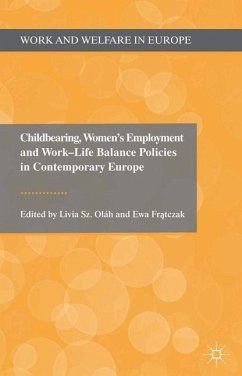This volume addresses the relationship between childbearing, paid work and work-life balance policies across Europe in the 21st century, illuminating the uncertainty and risk related to insecure labour force attachment, the incoherence of women's and men's access to education and employment and the unequal share of domestic responsibilities.
"The volume extends our knowledge about the mechanisms of childbearing decision making, the effect of increased labour market flexibility on family choices, the impact of policy measures, and the interplay between micro- and macro-level factors in different social contexts. The careful selection and the relatively low number of countries make the cross-national comparisons interesting and manageable, providing a good balance between detailed single-country descriptions and more generalised overview of dozens of nations. Even though each empirical chapter deals with one country at a time, the common comparative conceptual framework and the harmonised research design are meant to contribute to the coherence of the book. Moreover, the introductory and closing chapters seek to provide a common background and synthesise the findings." - Lívia Murinkó, Demographic Research Institute, Budapest, Hungary








